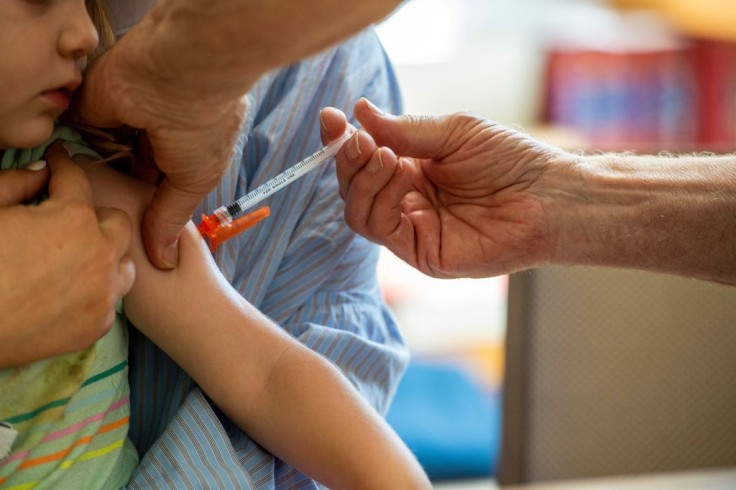
Last year, more kids missed important immunizations for illnesses like diphtheria, tetanus, and whooping cough due to increasing global struggles disturbing the quantity of these life-saving shots, especially in war-torn regions, the United Nations reported on Monday.
14.5 Million Children Missed Vaccinations in 2023
About 14.5 million kids did not get immunized in 2023, up from 13.9 million the previous year, according to U.N. estimations.
This number, however, was lessened than during the COVID-19 pandemic when around 18 million kids missed immunizations. Furthermore, the U.N. noted that 6.5 million kids get only one dose, leaving them insufficiently secured.
These estimations mirror the number of kids who got either the first dose or all three doses of the DTP vaccine, which defenses against diphtheria, tetanus, and whooping cough. Overall, 84% of infants worldwide completed their immunization series last year, below the threshold needed to avoid illness plague.
Countries influenced by war saw an important raised in unimmunized kids in 2023, according to UNICEF and the World Health Organization (WHO) at a press conference last week.
The most important drop in immunization coverage was noticed in Sudan, where 15 months of civil war lessened coverage rates from 75% in 2022 to 57% in 2023.
Therefore, nearly 701,000 kids in Sudan missed immunizations for dangerous illnesses such as measles and diphtheria.
In the occupied Palestinian territories, the number of unimmunized kids rose to 17,000 in the first nine months of last year, compared to 1,000 in 2021, based on available information up to September.
Sudan, Yemen, and Afghanistan were new additions to the list of the 20 countries with the most unimmunized or "zero-dose" kids in 2023.
Over half of the world's unimmunized kids live in countries with delicate, conflict-affected, or susceptible settings, even though these nations account for only 28% of the global birth cohort, UNICEF reported.
Decrease in "Zero-Dose" Children and Improved HPV Coverage in 2023
There were some decisive notes in the U.N. report. For example, there were around 600,000 fewer "zero-dose" kids in the African region in 2023 compared to 2022, and the coverage of the HPV vaccine, which safeguards against cervical cancer, also enhanced universally.
Despite its continuous war with Russia, Ukraine saw improved immunization rates.
Dr. Katherine O'Brien, director of the Department of Immunization, Vaccines and Biologicals at WHO, characterized the pandemic as a "historic backslide."
She highlighted the importance of reaching kids who missed immunizations during this time and the need to improve vaccination services beyond pre-pandemic levels.
The 2023 immunization coverage report from WHO and UNICEF, released on Sunday, represents the largest dataset on immunization trends for 14 diseases.
It analyzed estimates from 185 countries, using the third dose of diphtheria, tetanus, and pertussis (DTP3) vaccine, recommended for one-year-olds, as a universal benchmark for vaccination coverage.
The data signified that the improvement made in attaining pre-pandemic immunization levels has stalled, with worldwide DTP3 coverage staying at 84% in 2023, unchanged from 2022, and below the 86% recorded in 2019.
The report's authors caution that this inactivity warns the goal of 90% coverage for important childhood and adolescent vaccines by 2030.
This stagnation is attributed to ongoing disruptions in healthcare services, logistical challenges, vaccine hesitancy, and disparities in access to vaccinations, according to the organization's news release.